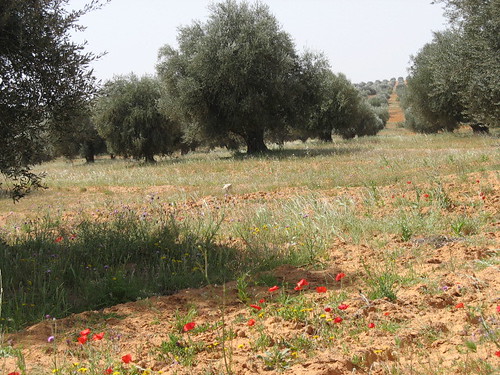Saudi, US academics team up to apply social farming in Hail
 Professors Joel Cuello and Kevin Fitzsimmons from the University of Arizona with Hail University officials. — Courtesy photo
Professors Joel Cuello and Kevin Fitzsimmons from the University of Arizona with Hail University officials. — Courtesy photo
— The University of Hail and University of Arizona is to work together to implement sustainable strategic social agriculture programs in the villages of Hail Province.
Social agriculture is an arrangement or strategy that provides village farmers with access to appropriate innovations to achieve economic profitability while fostering environmental sustainability.
In the short term, the collaboration aims to address specific agricultural challenges in a given village in Saudi Arabia, which would result in significant benefit to the village.
In the medium term, it will introduce sustainable agricultural development practices to promote income and healthy lifestyle for farmers in the rural areas to promote economic growth, alleviate poverty and enhance food security.
The long-term goal is to incorporate the sustainable strategic social agricultural program as part of the donations that Saudi Arabia gives to other countries. According to a recent International Monetary Fund (IMF) report, Saudi Arabia has given Arab nations SR85 billion ($22.7 billion) in direct aid over 40 months.
Additionally, the joint collaboration will seek the participation of the Saudi Arabia Ministry of Agriculture and Food and Agriculture Organization of the United Nations and the World Bank in the future.
Spearheading the joint collaboration is Dr. Turki Faisal Al-Rasheed, an alumnus and adjunct professor at the University of Arizona’s department of agricultural and bio-systems engineering.
Al-Rasheed’s experience in this area includes writing on the Saudi experience of agricultural development strategies.
Rector of Hail University Dr. Khalil Bin Ibrahim Al-Ibrahim and Dr. Khalid Asiry, head of the university’s Sheikh Al-Jomaih Chair for Sustainable Development in Agricultural Communities, invited professors Joel Cuello and Kevin Fitzsimmons from the University of Arizona to visit them.
The main goal of the visit was to start implementing sustainable strategic social agriculture in Hail by selecting a pilot village.
The collaboration will work with the village to identify its most significant challenges such that, when addressed with a rather simple solution at a relatively low cost and over a moderate period of time, the village will experience a significant beneficial impact.
Farmers seeking the latest information on prices and crop conditions are also more likely to check their Twitter feed before calling their broker. ( 
)
Sustainable strategic social agriculture can help prevent the depopulation of the rural areas, alleviate poverty, provide opportunities for employment in the agricultural villages as well as help ensure a healthy lifestyle and standard of living, education and training and health services for the local population.
The joint collaboration is committed to reaching out to villages in Hail through sustainable strategic agriculture.
This program helps the University of Hail to attain its principal goals of assuming a leading position not only in education and research but also in community service and in innovation and development in support of the national economy.
During their two-day stay, the group visited various agricultural villages in Hail, including Bagaa, Al-Khutta, Jedaidha and Al-Jubbah, and spoke with the village farmers to determine the most significant challenges to their livelihood.
By directly communicating with local farmers in the villages, the group is now able to understand how best to address those challenges.
The group also held a meeting with selected stakeholders from the region to discuss the plans for piloting strategic social agriculture in Hail.
A pilot village was chosen and the initiative will be put into action. Improvements will be monitored and reported on in the coming months.
Saudi, US academics team up to apply social farming in Hail | Kingdom | Saudi Gazette
Almarai - the largest vertically integrated dairy company in the world
Almarai - Wikipedia, the free encyclopedia


















 )
)


























